As it happens every year, one of the less-known events of the European far-right was scheduled to take place in Sofia, the capital of Bulgaria. The Lukov March, as it is called, was supposed to occur on February 25, 2023, as a memorial demonstration and a tribute to the Bulgarian General and WWII era politician, Hristo Lukov.
This year was symbolic for the organizers of the event, as it marked the twentieth year of the Lukov March, which originally began in 2003. To gain more understanding about Lukov and the march, Unicorn Riot was on the ground in Sofia where we heard from a professor, a nationalist leader and an anti-fascist.
In the period leading up to this year’s march, the Municipality of Sofia, the Bulgarian government and organizations of the Jewish community succeeded in banning the Lukov March.
Every year there is an attempt from the Municipality of Sofia, the Jewish community and NGOs to get rid of the Lukov March. Every year, except 2020, these attempts were overturned by a court decision and failed, which gave the nationalists the right to demonstrate.
This year, the Sofia City Administrative Court overturned the municipality’s ban but gave the opportunity for an appeal to the Supreme Administrative Court. The latter’s decision was supposed to be announced on Feb. 20, but was postponed due to procedural reasons and specifically a bureaucratic error made by the Municipality. The Supreme Administrative Court gave the municipality seven days to correct the error, thus the deadline became Feb. 27, two days after the Lukov March was supposed to take place. As a result, the Municipality stated that until the final decision of the Supreme Court is announced, Lukov March is considered banned.
Two days before the event, the General Prosecutor of Bulgaria spoke against the Lukov March, stating it should be banned. As a response, the organizers of Lukov March called for a separate demonstration three hours before the main event, to protest the ban on the Lukov March. Their main motto was “There isn’t an illegal march, but illegal actions from Bulgarian institutions.”
However, the pressure from Sofia Municipality led to this first demonstration to be the only one that actually took place on Feb. 25. The announced Lukov March main event, which was supposed to take place at 5:30 p.m. never happened. To add to all this, in the nationalistic demo that actually took place, it was forbidden for the participants to mention Hristo Lukov’s name or to show images of him. On the other hand, the participants were chanting “Forbidden, but not forgotten.”
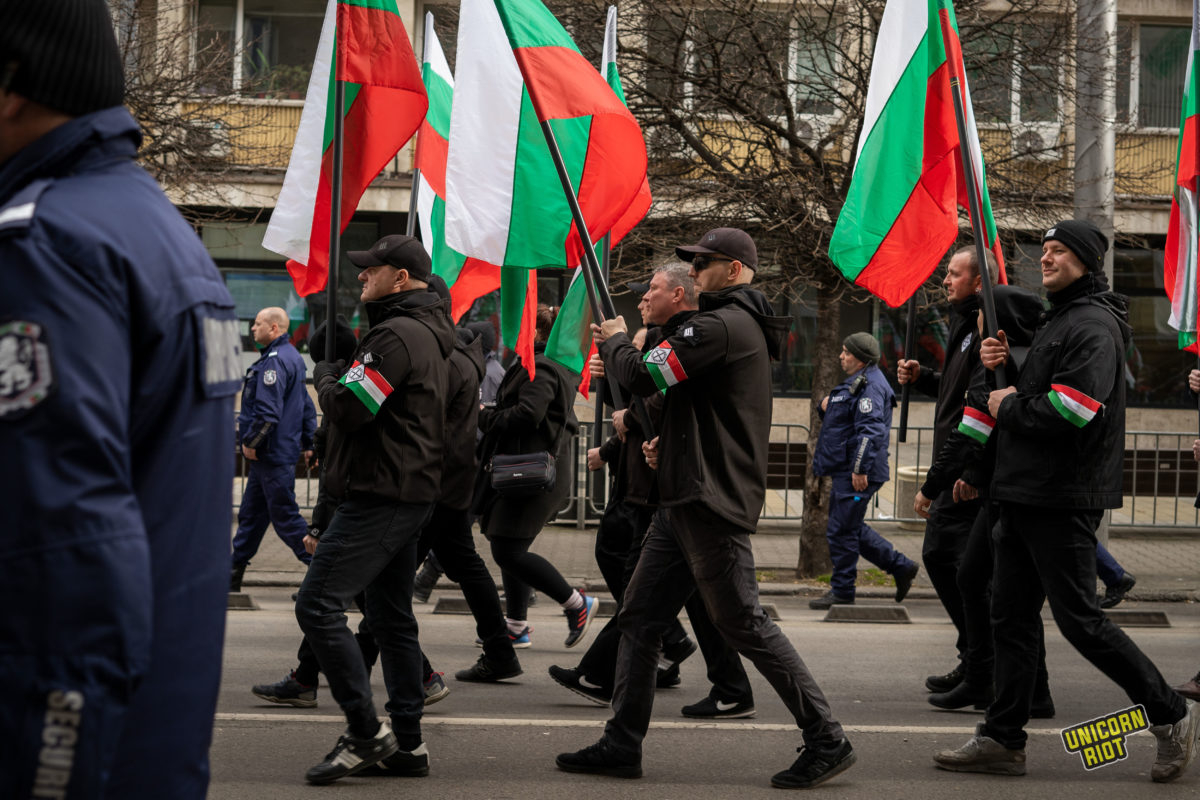
Who was Hristo Lukov?
Hristo Lukov was a Bulgarian General and Nazi collaborator during World War II. Bulgaria was allied with Germany during the war. At that time, Lukov and his political movement, whose main motto was “To expel from Bulgaria anyone who does not have Bulgarian blood,” pushed for the adoption of “The Laws for the Protection of the Nation,” which were inspired by the Nuremberg Laws and provided the segregation, exclusion, and oppression of the Jewish population of the country.
Eventually, Lukov was assassinated by two Jewish Communist partisans, Ivan Burudzhiev and Violeta Yakova, outside his house in Sofia, in 1943.
But Bulgaria’s relationship with the Holocaust is much more complex. In 1943, when the Nazi forces pursued the transportation of 50,000 Bulgarian Jews to concentration camps, the Bulgarian King of that time, Boris III, along with the Orthodox Church, resisted and prevented the transportation and extermination of the Jewish population. However, some 11,000 Jews from the Bulgarian-occupied territories of Greece and Yugoslavia, were sent to certain death to the Treblinka concentration camp in Poland.
Unicorn Riot interviewed Petar Cholakov, an Associate Professor of Sociology at the Institute for the Study of Society and Knowledge of the Bulgarian Academy of Sciences, to find out more about Hristo Lukov and his modern admirers. Mr. Cholakov said Lukov was a complicated and controversial figure whose organization held Nazi sentiments.
“He was a [World War I] hero and Minister of War, but he was also leader of the organization called Union of Bulgarian National Legions, which was similar to Hitlerjugend (Hitler Youth). There is no doubt that this organization had strong anti-Semitic ideas and strong Nazi and fascism sympathy sentiments.”
Petar Cholakov, Associate Professor of Sociology at the Institute for the Study of Society and Knowledge of the Bulgarian Academy of Sciences
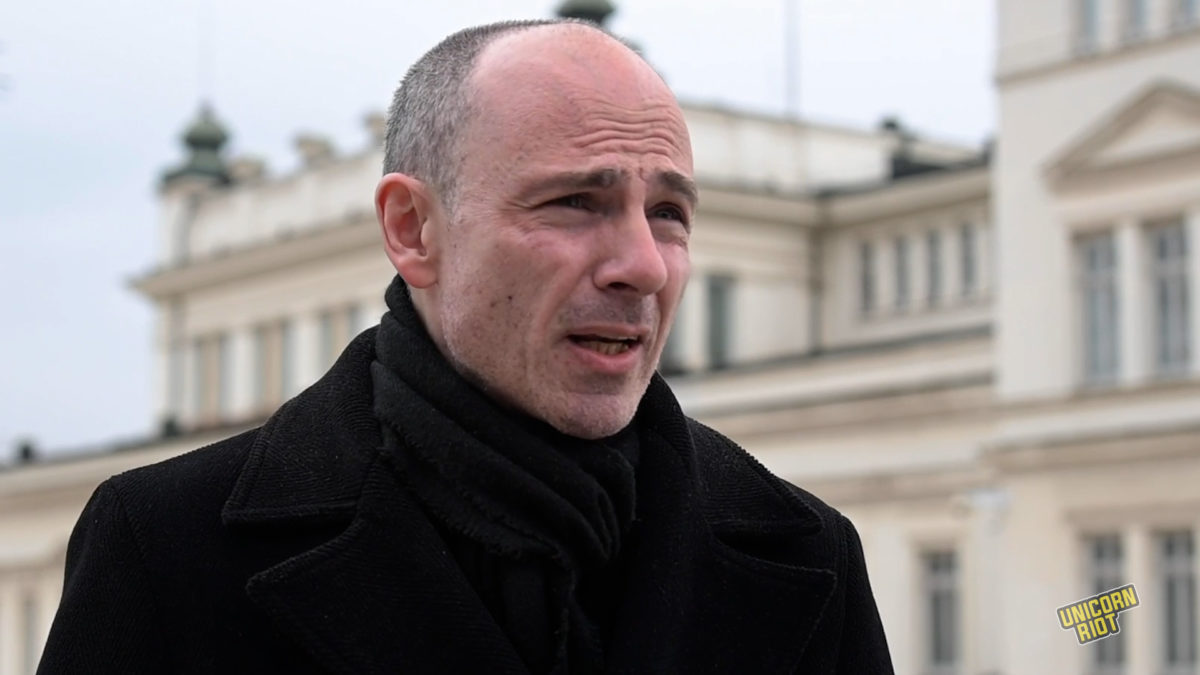
The Organizers of the Event
Lukov March is organized by an ultra-nationalistic, far-right group called Bulgarian National Union (BNS), which considers itself as a continuation of the Union of Bulgarian National Legions (UBNL), whose leader was Lukov. UBNL’s youth organization, called Union of National Youth Legions, used the swastika as part of their official emblem. Concerning BNS, Mr. Cholakov told us their ideas are related to anti-Semitism and xenophobia.
This year’s demonstration was propagandized by international far right Telegram channels. In the weeks leading up to the event, the organizers proceeded with propaganda actions and activism.
To hear from the organizers, Unicorn Riot interviewed Plamen Dimitrov, the head of the BNS Sofia branch. We met him outside of the offices of BNS, which are in the center of Sofia in a heavily Muslim-populated neighborhood, near the city’s mosque and synagogue.
Dimitrov said that BNS is a “Bulgarian nationalistic organization” and that their “goal is to keep the memory of our heroes and traditions alive.” He considers Lukov a Bulgarian hero who revived the Bulgarian army after World War I and his role in Bulgarian history was very important because he and his organization (the UBNL) stopped the Communist movement, and did it without using violence.
He also stated that what the critics say towards Lukov is “Communist propaganda” and that “there [is] no historical evidence that prove that Hristo Lukov was anti-Semitic.”
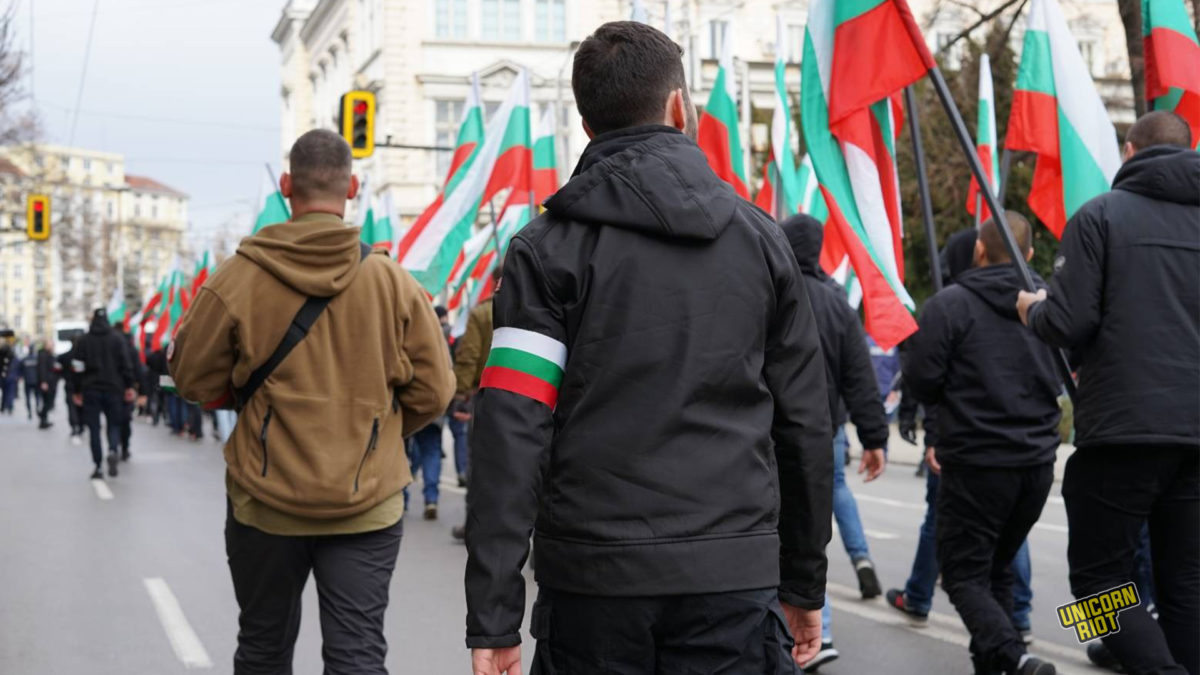
Friendships from Abroad
The Bulgarian National Union is not the only group that participates in the Lukov March. Every year, some fringe groups from Bulgaria, as well as several far-right allies from abroad also participate.
There have been reports from 2018 and 2020 of far-right and neo-Nazi participation from Hungary, Germany, France and Scandinavia, and in a video from last year’s march one can see the flags of the neo-Nazi Nordic Resistance Movement.
Mr. Dimitrov stated during our interview that every year German, French, Polish, Swedish and Czech nationalists support their march and this year is no exception. “There are representatives of nationalistic organizations from ten different countries this year,” he said.
A post from a far-right Telegram channel, made on the day of the march, shows participants from Bulgaria, France and Hungary, outside of BNS’s offices, writing “European brotherhood in Sofia for the Lukov March.”
Beyond this, there have been reports from 2018, 2019 and 2020 referring to the BNS collaboration with a Bulgarian group called White Front, which appear to be participating in the Lukov March as well. There are some other indications that BNS and White Front had ties with Blood and Honor as well.
White Front’s posters include neo-Nazi symbols such as the Black Sun and give the impression that they try to imitate the aesthetic used by the neo-Nazi accelerationist group Atomwaffen Division. Posts on Telegram show the connection between neo-Nazi American group Vorherrschaft Division, and White Front, which referred to the latter as “our brothers from Bulgaria” being “in collaboration.” However, the White Front Telegram channel appears to be inactive since 2020 and the group’s websites are down.
The Anti-Fascist Counter March
On Feb. 25, 2023, the nationalists didn’t manage to accomplish their programmed march; however, the antifascists did. Antifa Sofia was once again present this year during the Lukov March and organized a counter-protest entitled “No nazis in our streets,” aimed at protesting the public appearance of the far-right in the Bulgarian capital.
Unicorn Riot chatted with Nikolai, a member of the Antifa Sofia collective and one of the organizers of the anti-fascist rally. They have been organizing the counter Lukov March anti-fascist rally for the last twelve years. This rally unites people from the Left, the queer and anti-racist movements but also liberals, who all together protest against nationalism in Bulgaria.
Concerning the organizers and participants of Lukov March, Nikolai stated most of them are far-right ultranationalists but for sure there are some neo-Nazis and militants participating every year. “They try to hide this from the public masking themselves as simple patriots,” he added.
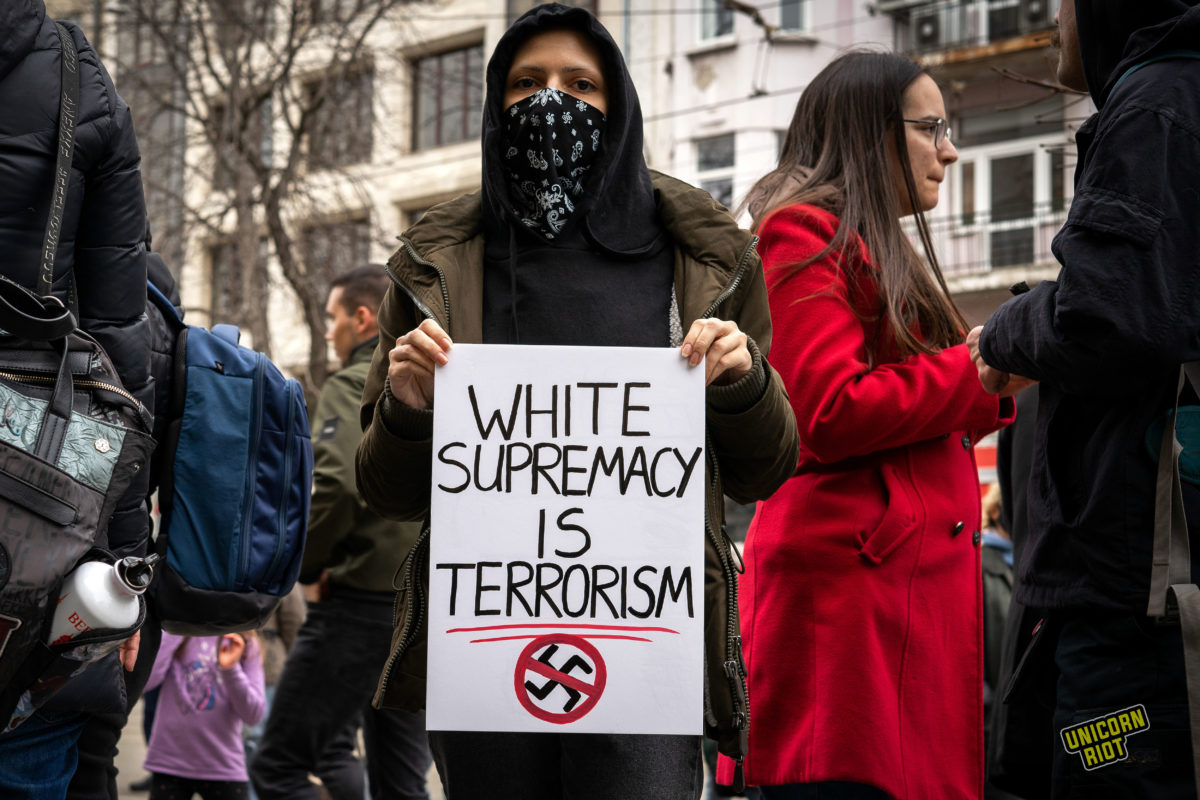
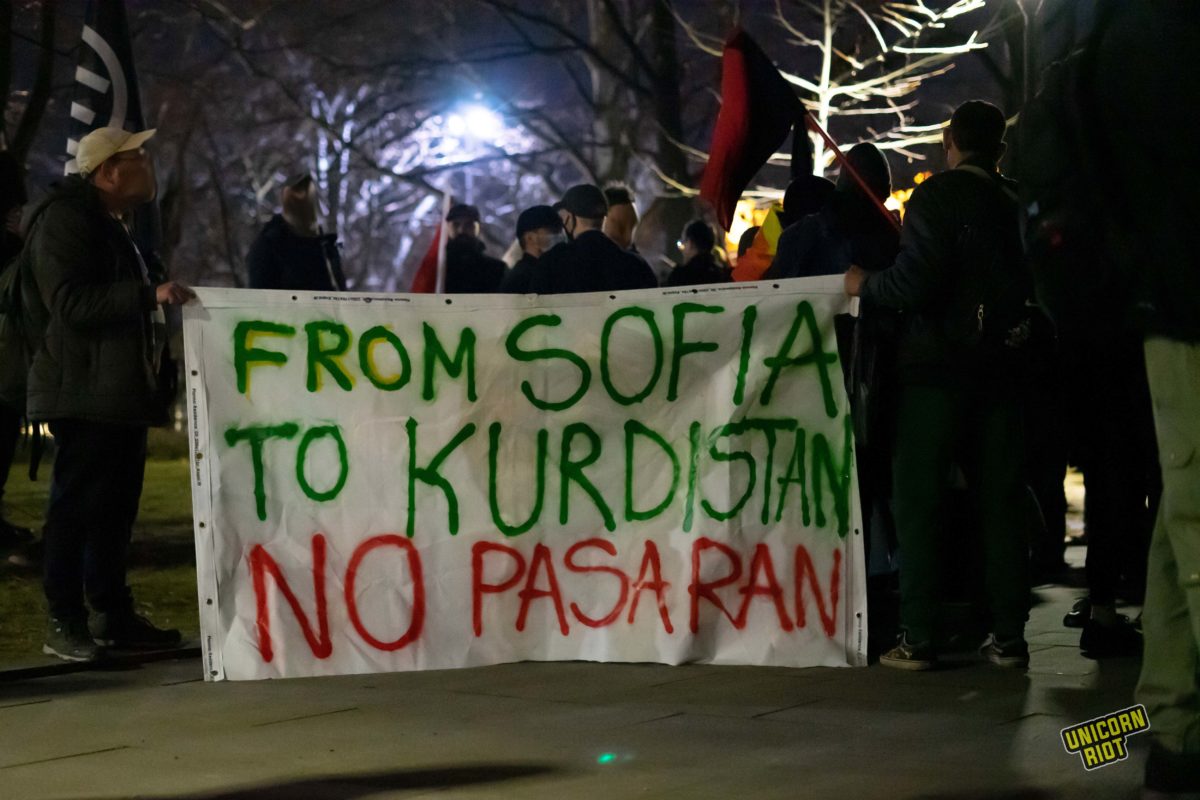
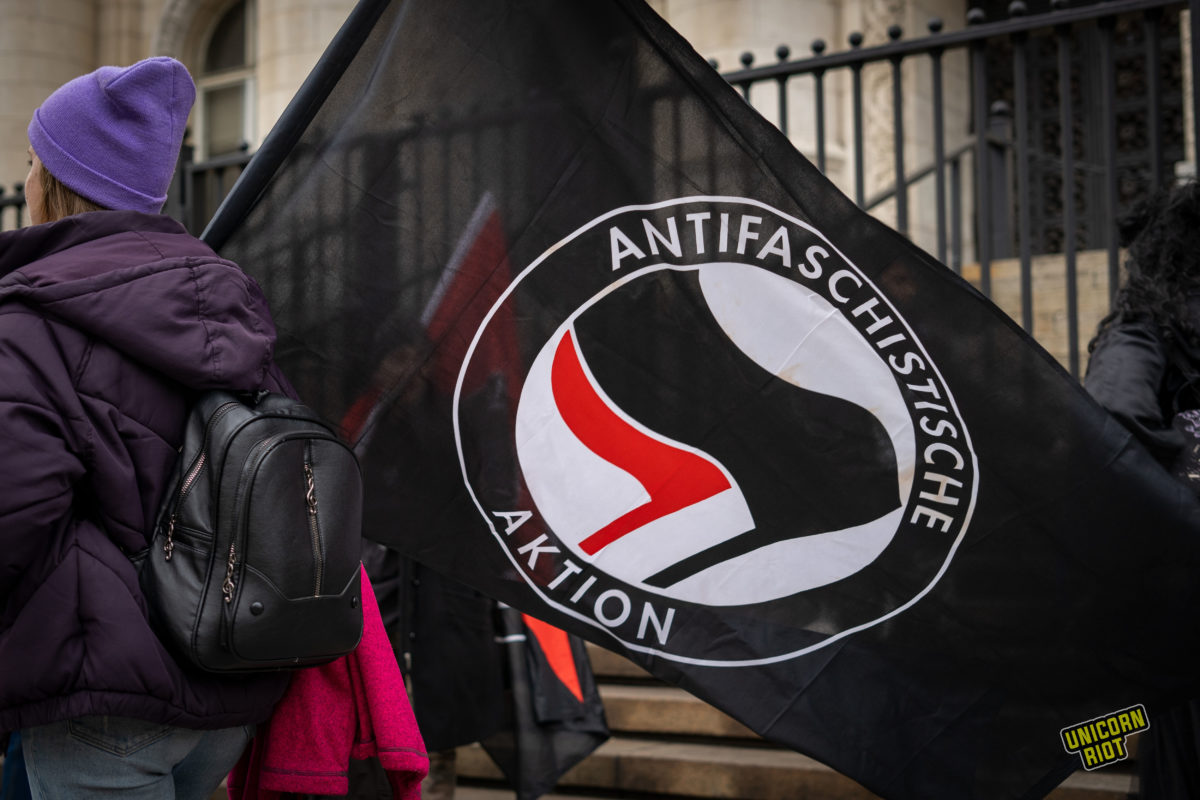
Editor’s Note: The patch seen in the video from 1:03-1:07 is a rendition of the original symbol of the Union of Bulgarian National Legions, which Lukov took over in 1942 after being formed in 1932. The circle N at the bottom of the symbol, largely known in leftist circles in Europe and the U.S. as the sign for squatting, was originally used as the Legion’s party flag in the 1930’s.
Further Research
Nationalists and far-right figures from America have commented about Hristo Lukov and the Lukov March in our Discord Leaks database.
For more Unicorn Riot reporting on international far-right groups, see the following stories:
South African Nazi Exposed In International Terror Training Network
Canadian Navy Sailor Advertised Arms Deals on Neo-Nazi Forum
New Zealand Soldier With Alleged Nazi Ties Arrested
Canada’s Navy Reinstates Sailor Exposed for Neo-Nazi Ties
German Far-Right Targets Medics as Left Mobilizes in Chemnitz
Bomb Explodes at Hamburg Transit Station, Neo-Nazi Arrested
Follow us on Twitter, Facebook, YouTube, Vimeo, Instagram, Mastodon and Patreon.

The post What is the Lukov March and Why Was it Banned in Bulgaria? appeared first on UNICORN RIOT.
by Unicorn Riot via UNICORN RIOT

No comments:
Post a Comment